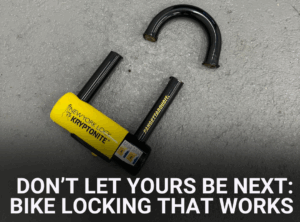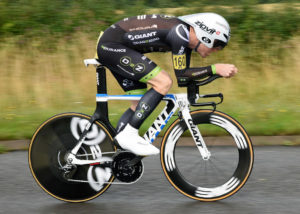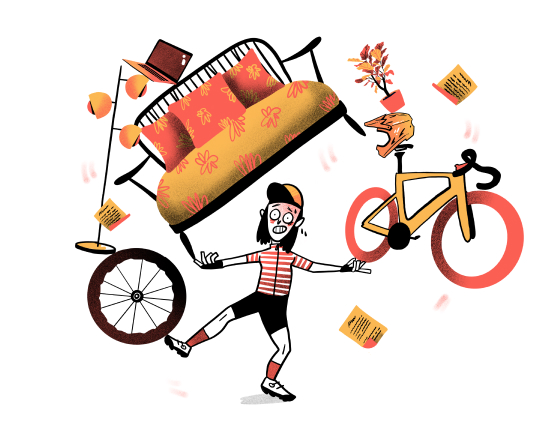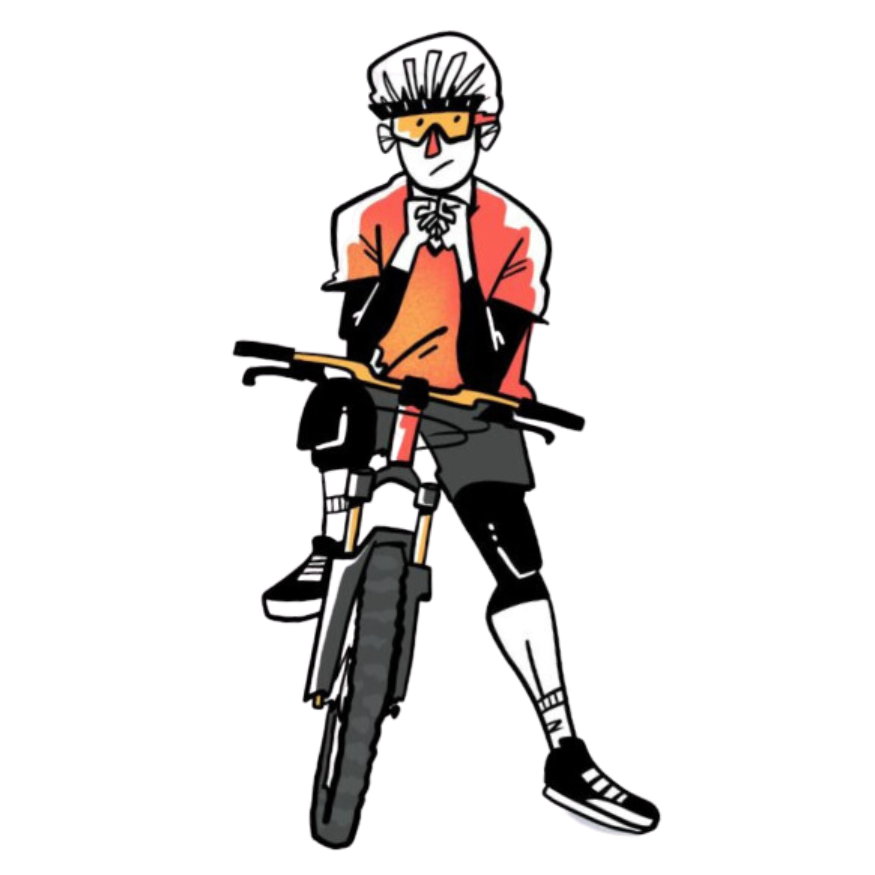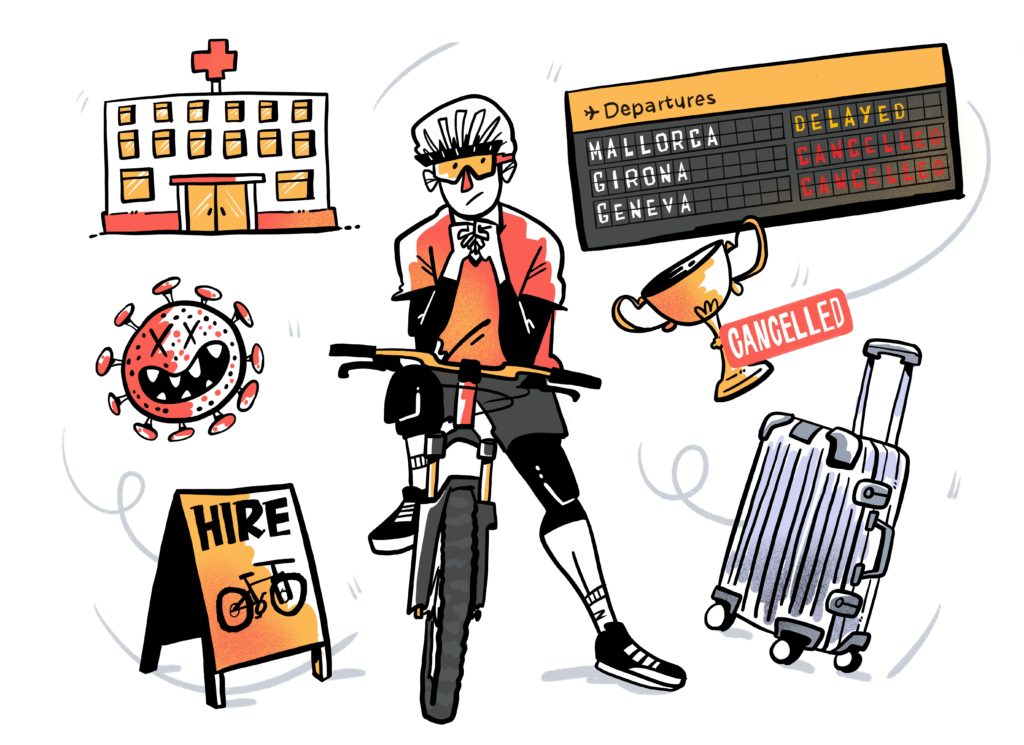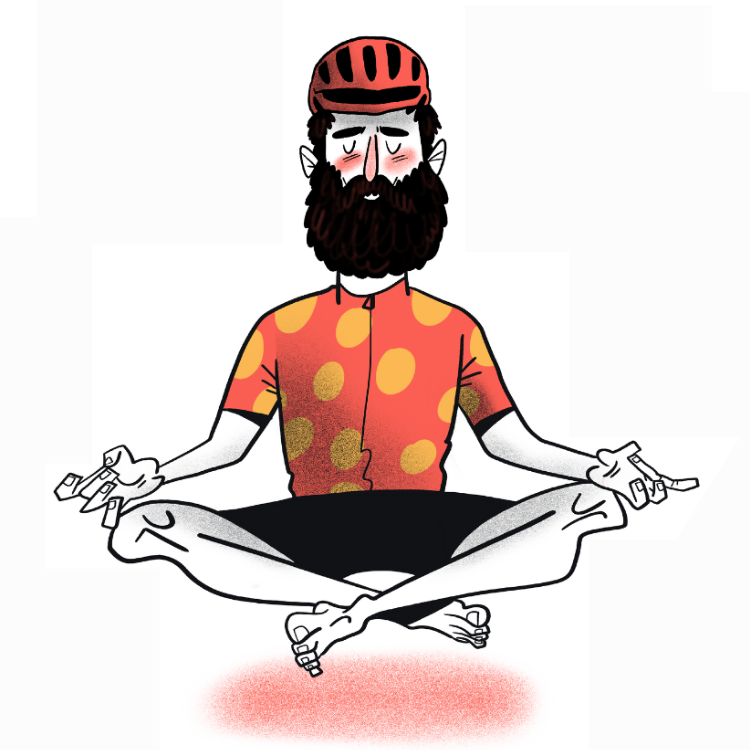There are a myriad of motivations for turning a pedal from winning bike races to taming greenhouse gases, to group ride bonhomie, boshing traffic-clogged commutes to crimping waist lines.
If you’re reading this you probably have your own personal shortlist detailing why cycling is so awesome to you.
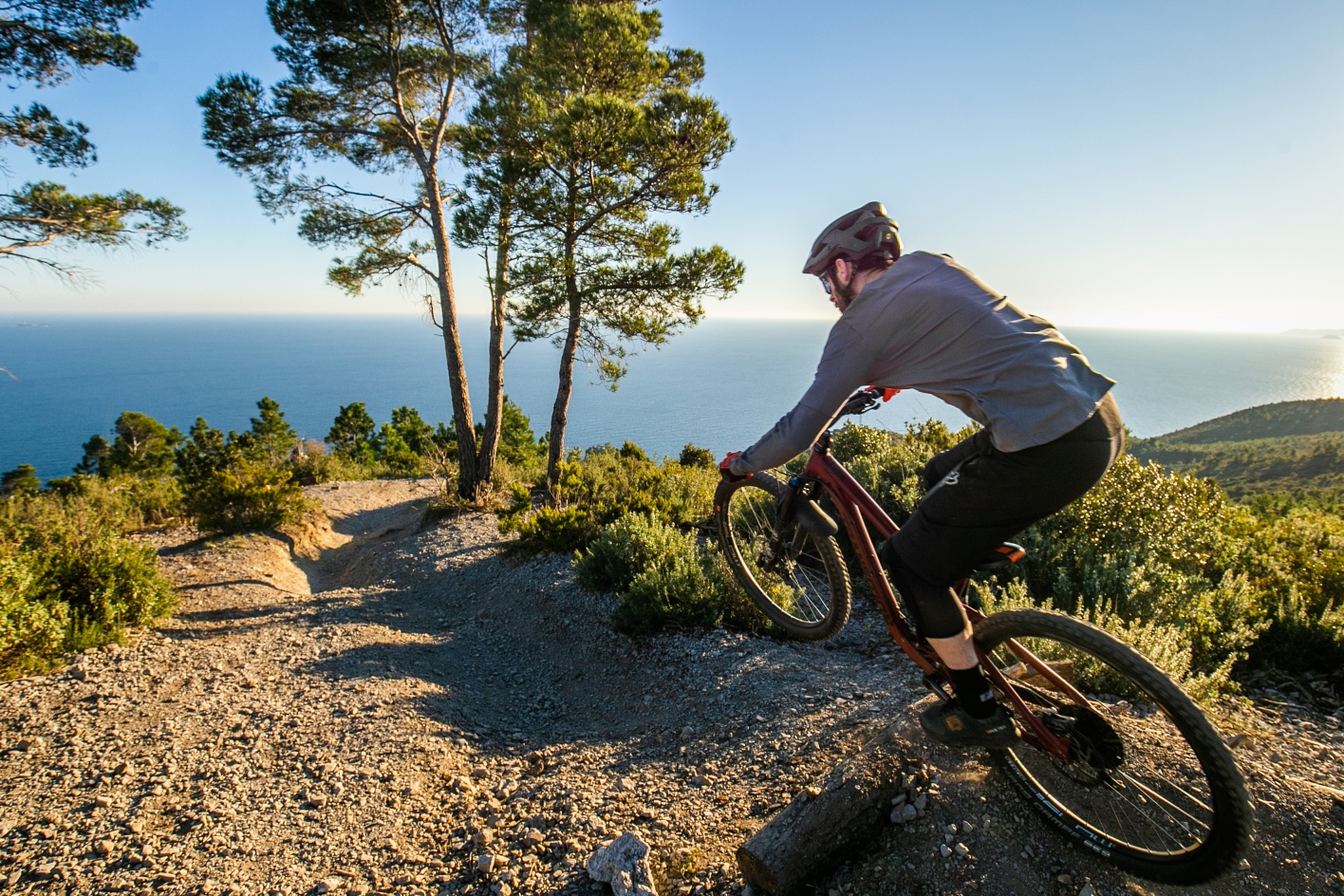
One item that would probably appear on most bike-lovin’ lists aside from a deep love of spandex is stress relief – something we’ve all needed a lot more of over the crippling course of this seemingly endless and hideous global pandemic. As if modern life wasn’t already stressful enough…
American-Brit poet T.S. Eliot called April the cruellest month in his long bleak poem The Wasteland that famously captured the life stresses of a century ago. “My nerves are bad to-night. Yes, bad. Stay with me.”
Maybe the characters in Mr Eliot’s poem should have cycled to work…just sayin’.
We’ll call April a month of hope and renewal as Winter recedes, Summer beckons and the pandemic (slowly) comes under some kind of control in much of the world as national vaccination programmes kick in.
April also bears the sage of International Stress Awareness Month (#stressawarenessmonth) that has probably never been more needed since its inception in 1992. Well, maybe last year…
This #StressAwarenessMonth, let’s make time to focus on our well-being & be mindful of how much stress impacts us – whether driven by external or internal factors. Even small changes in dealing with negative events/news or how we approach our daily activities can help us thrive. pic.twitter.com/dDERR7r903
— Anne Chow (@TheAnneChow) April 17, 2021
Use your noggin: Moving meditation
Physiologists, neurologists and other scientists have explored and documented why exercise forms like bike riding are so beneficial for mental health: from mood-boosting cannabinoid and endorphin release to the proliferation of proteins like the onerously titled brain-derived neurotrophic factor (BDNF) and wonderfully named compound, noggin – both of which promote brain cell growth and better cognitive fluidity (which can help reduce stress).
Cycling has also been shown to reduce levels of stress-inducing chemicals like cortisol and adrenaline.
More prosaic benefits include cardiovascular regulation, skill and goal attainment (which boosts confidence and can reduce stress) and communing with nature and other riders.
“Just cruising on your bike, feeling the wind, even the rain, hearing the birds and just trying to connect with the feelings of your legs pedalling will be of great help for boosting your mind,” says Luxembourg-based Delphine Dard-Pourrat, a behavioural economist, yoga teacher, cyclist and fellow Haute Route bike race ambassador.
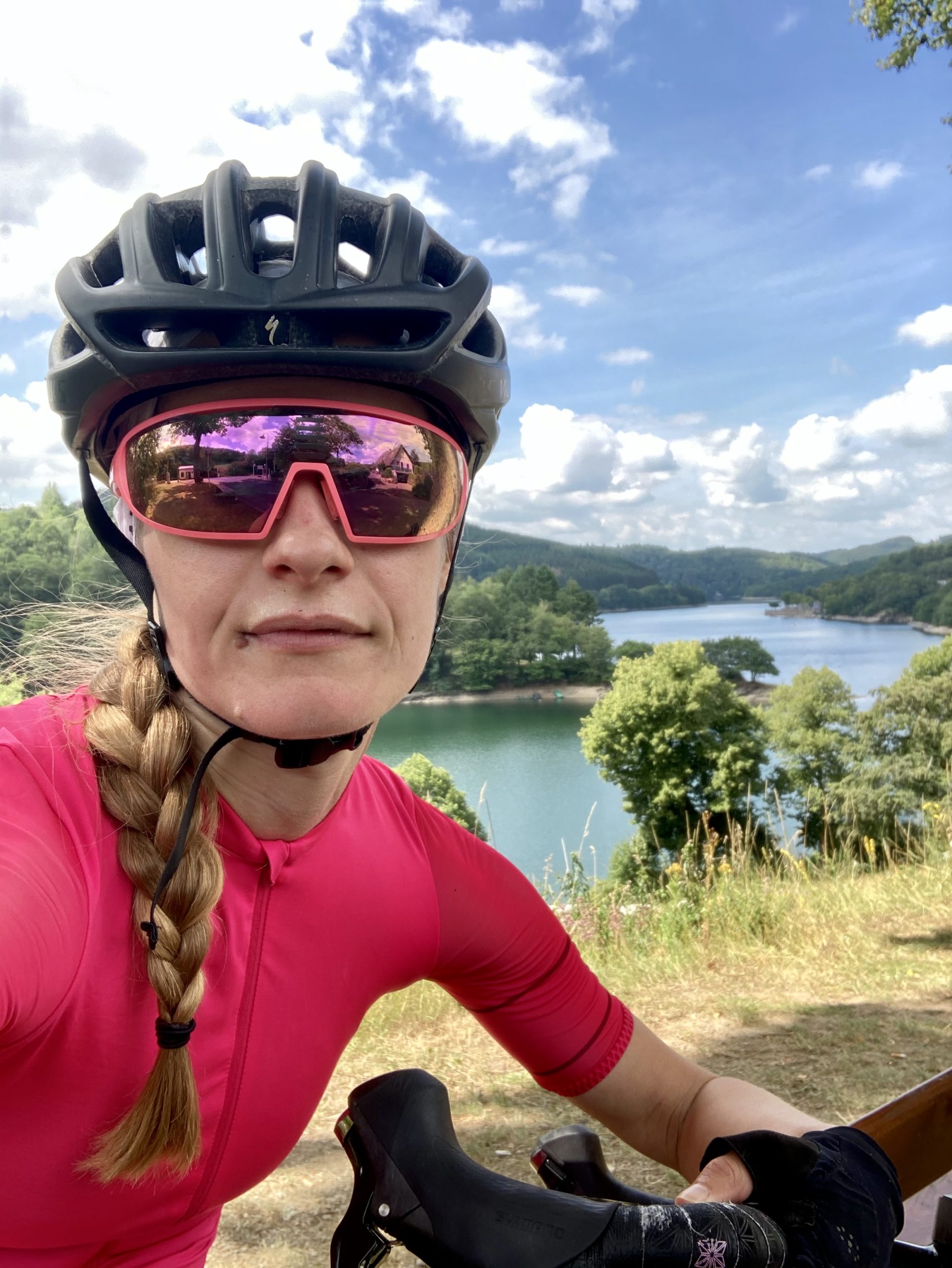
Dard-Pourrat tailors yoga programmes for cyclists, and through Kensho Advisory helps businesses create cultures where human behaviour can be optimised (including stress management).
It’s fair to say she knows a bit about besting le stress in toxic or topsy-turvy workplaces, which along with economic pressure and relationships, are primary causes of stress. Cycling is always prominent in her remedial bag of stress busters.
“As a cyclist and yoga teacher, I am quite realistic about what you can and cannot do in these pandemic times. But cycling helps you go into a state of flow, which is backed up with science and means you can focus on the task you are doing right now and can clean your mind,” she says. “In short, moving meditation can be more helpful than still meditation.”
Pandemic-provoked exercise restrictions in many countries have shifted a lot of that action to home trainers and virtual platforms like Zwift, but stationery movement is still better than no movement; is still capable of bringing us into those precious flow states and far away from stress and negativity that go with it.
Other studies show exercised brains have better functioning neural networks; are more creative, show better memory, planning and logic traits; perform better in exams and other challenges and are more resistant to neurodegenerative diseases like Alzheimer’s and Parkinson’s not to mention mental health ailments.
The Sisyphean stressball
The power of such actions is brought into stark relief by the scale of the stress problem, which can be tragically exacerbated by the effect on those around the stressed individual – the damage done to children by stressed parents an obvious example.
Analyst Statista estimates stress-related illness costs the UK National Health Service (NHS) something like £7.5 billion each year, while the cost to the economy is closer to £50bn according to New Economics Foundation. It said stress, depression and anxiety was responsible for 12.5 million lost working days in 2016/2017.
A recent poll by Texas-based Ingredient Transparency Center among supplement-using Americans, Brits and Germans found stress/anxiety reduction was one of the top three reasons they purchased food supplements.
The UK NHS summarises stress this way: “Stress can affect how you feel, think, behave and how your body works. In fact, common signs of stress include sleeping problems, sweating, loss of appetite and difficulty concentrating.
“You may feel anxious, irritable or low in self esteem, and you may have racing thoughts, worry constantly or go over things in your head. You may notice that you lose your temper more easily, drink more or act unreasonably.
“You may also experience headaches, muscle tension or pain, or dizziness.”
Gulp. I need a ride just reading that…😳
We should be clear though that not all stress is bad. Stress can motivate, focus and activate and is pretty necessary if performance is something you value. That’s good stress. It helps elevate you. Some call it ‘eustress’, ‘eu’ meaning good in Greek.
Like most things, the devil is in the dose and type.
Empty your head
Realistically bike riding won’t resolve some of the underlying causes of stress – torturous workplaces, torrid relationships, systematic economic inequality or pandemics for that matter are not quickly or easily fixed, but activities like cycling can bring perspective, community, meaning and a potent countermeasure to stress.
Nic Frank, another Haute Route ambassador and positive psychologist whose London-based consultancy also helps firms evolve their workplaces, emphasises the simple power of being on a bike in nature.
“The cities many of us live in are defined by sharp lines, sterile buildings and often dour or artificial colours – in nature there are softer colours – blues, greens, the shapes are rounder, there is birdsong, the air is better, you are way from devices,” he reckons. “It’s just great to be on a bike riding through an environment like that. You can empty your head.”
I’ll ride to that…
Words from Shane Starling.

